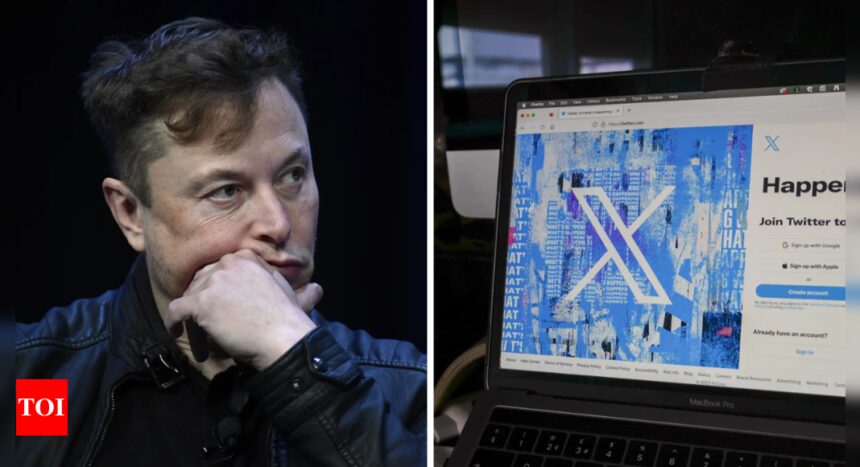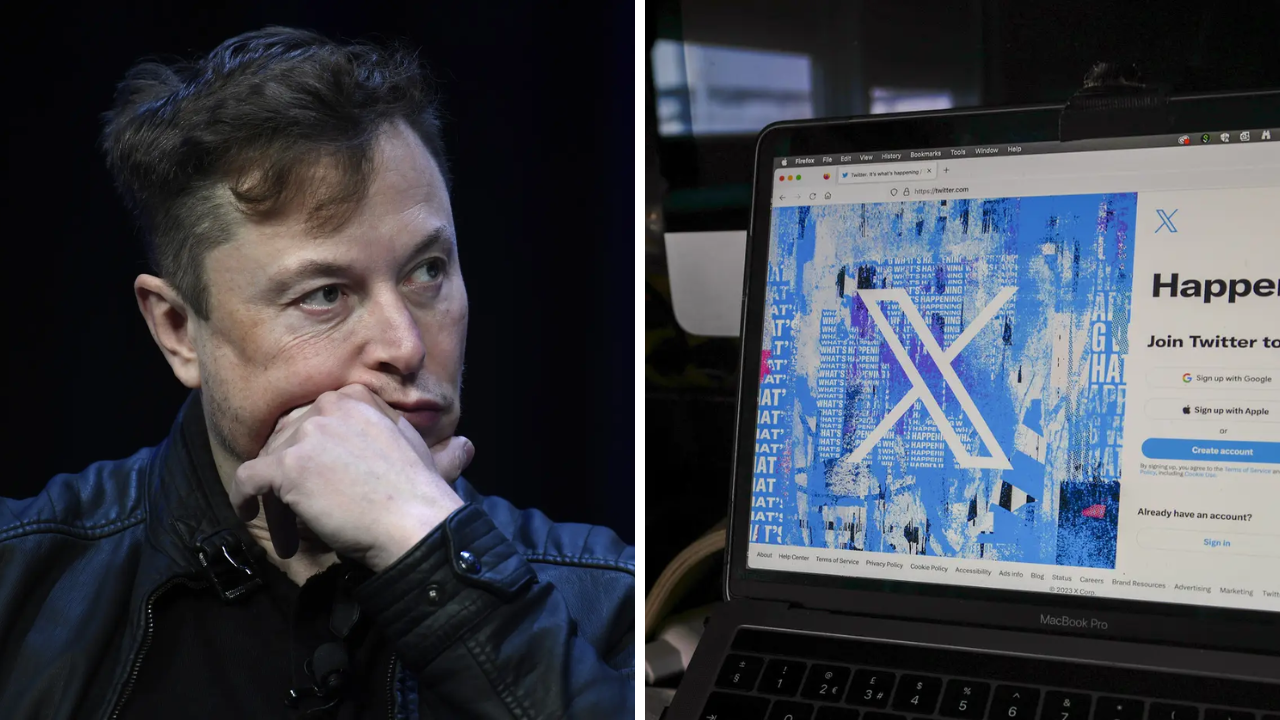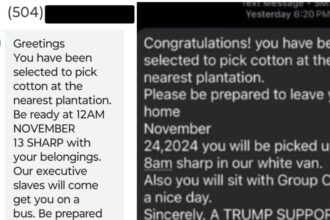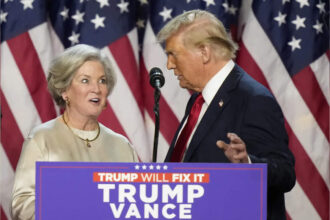Elon Musk‘s X social media platform was once again inaccessible in Brazil on Thursday, merely a day after it had resumed service in violation of a judicial ban, according to internet providers.
Earlier in the day, Brazil’s Supreme Court had mandated X to suspend access to the platform, determining that the company had “unlawfully, persistently and intentionally” disregarded judicial rulings and would face a daily fine exceeding $900,000 for non-compliance.
Last month, the former Twitter was banned in Brazil, but access to the phone app was restored on Wednesday, which the government condemned as a deliberate breach of the suspension.
X said that the restoration of its service was “inadvertent and temporary.”
On Thursday, the ABRINT association of internet providers reported that the network went offline again “just before 4 pm” local time and was once again “blocked.”
In a court order on Thursday, Judge Alexandre de Moraes referred to X as “recalcitrant” and instructed the state telecommunications agency Anatel to take the necessary steps to block access to the network once more.
The high-profile judge has been engaged in a prolonged dispute with South African-born billionaire Musk as part of his efforts to combat disinformation in Brazil.
His suspension of X last month occurred after Musk refused to remove dozens of right-wing accounts accused of spreading fake news and failed to appoint a new legal representative in the country as directed.
Moraes has also frozen the assets of X and Musk’s satellite internet operator Starlink—which has been operating in Brazil since 2022, particularly in remote communities in the Amazon—to ensure payment of fines imposed on the social network for disregarding court orders.
Last week, Moraes ordered the transfer of approximately $3 million from Musk’s companies to pay fines incurred by X.
Musk has repeatedly criticized Moraes in social media posts, referring to him as an “evil dictator” and nicknaming him “Voldemort” after the villain from the “Harry Potter” series.
Internet providers explained that X became accessible again on Wednesday following an automatic update to the phone application.
New software allowed the app to use constantly changing identifying IP addresses via a service called Cloudflare, making it more difficult to block.
ABRINT reported on Thursday that X had now discontinued its use of Cloudflare.
While X claimed that the restoration of service was unintentional, Anatel stated that the company had acted with “deliberate intention” to circumvent the Supreme Court order.
Anatel announced on Thursday that it had “identified a mechanism which, we hope” will block the service again.
When banning X, Moraes also ruled that those using “technological subterfuges” such as virtual private networks (VPNs) to access the blocked site could be fined up to $9,000.
How did the spat begin?
The tension between Elon Musk and the Brazilian judiciary has escalated in recent months, focusing on issues surrounding free speech, content moderation, and alleged judicial overreach. Despite Brazil being a significant market for X in terms of user base, Supreme Court Justice Alexandre de Moraes recently banned the platform. Musk opted to shut down X’s Brazilian office instead of complying with orders to remove specific accounts, resulting in the app’s ban.
The conflict began when Justice Alexandre de Moraes took action against Musk’s social media platform, X (formerly Twitter), accusing it of not moderating content that allegedly encouraged violence and disseminated misinformation, especially in the aftermath of unrest related to supporters of ex-president Jair Bolsonaro.
In April 2024, de Moraes included Musk and X in the ongoing “Digital Militias Inquiry,” an investigation focused on fighting online misinformation. The judge accused Musk of reactivating blocked profiles without court approval and hindering judicial efforts to regulate online content.
On August 30, 2024, Justice de Moraes ordered the suspension of X in Brazil, saying the platform had failed to comply with local laws requiring a legal representative in the country. This decision led to a complete shutdown of X’s operations in Brazil, with major tech companies and internet service providers like Apple, Google, and Brazilian ISPs blocking access to the platform for its users.
Musk reacted strongly to the suspension, using X to post provocative messages directed at Justice de Moraes, including an image suggesting the judge would end up in prison. Musk labelled de Moraes a “dictator” and called for his impeachment, accusing him of “censorship” and undermining freedom of speech.
Earlier in the day, Brazil’s Supreme Court had mandated X to suspend access to the platform, determining that the company had “unlawfully, persistently and intentionally” disregarded judicial rulings and would face a daily fine exceeding $900,000 for non-compliance.
Last month, the former Twitter was banned in Brazil, but access to the phone app was restored on Wednesday, which the government condemned as a deliberate breach of the suspension.
X said that the restoration of its service was “inadvertent and temporary.”
On Thursday, the ABRINT association of internet providers reported that the network went offline again “just before 4 pm” local time and was once again “blocked.”
In a court order on Thursday, Judge Alexandre de Moraes referred to X as “recalcitrant” and instructed the state telecommunications agency Anatel to take the necessary steps to block access to the network once more.
The high-profile judge has been engaged in a prolonged dispute with South African-born billionaire Musk as part of his efforts to combat disinformation in Brazil.
His suspension of X last month occurred after Musk refused to remove dozens of right-wing accounts accused of spreading fake news and failed to appoint a new legal representative in the country as directed.
Moraes has also frozen the assets of X and Musk’s satellite internet operator Starlink—which has been operating in Brazil since 2022, particularly in remote communities in the Amazon—to ensure payment of fines imposed on the social network for disregarding court orders.
Last week, Moraes ordered the transfer of approximately $3 million from Musk’s companies to pay fines incurred by X.
Musk has repeatedly criticized Moraes in social media posts, referring to him as an “evil dictator” and nicknaming him “Voldemort” after the villain from the “Harry Potter” series.
Internet providers explained that X became accessible again on Wednesday following an automatic update to the phone application.
New software allowed the app to use constantly changing identifying IP addresses via a service called Cloudflare, making it more difficult to block.
ABRINT reported on Thursday that X had now discontinued its use of Cloudflare.
While X claimed that the restoration of service was unintentional, Anatel stated that the company had acted with “deliberate intention” to circumvent the Supreme Court order.
Anatel announced on Thursday that it had “identified a mechanism which, we hope” will block the service again.
When banning X, Moraes also ruled that those using “technological subterfuges” such as virtual private networks (VPNs) to access the blocked site could be fined up to $9,000.
How did the spat begin?
The tension between Elon Musk and the Brazilian judiciary has escalated in recent months, focusing on issues surrounding free speech, content moderation, and alleged judicial overreach. Despite Brazil being a significant market for X in terms of user base, Supreme Court Justice Alexandre de Moraes recently banned the platform. Musk opted to shut down X’s Brazilian office instead of complying with orders to remove specific accounts, resulting in the app’s ban.
The conflict began when Justice Alexandre de Moraes took action against Musk’s social media platform, X (formerly Twitter), accusing it of not moderating content that allegedly encouraged violence and disseminated misinformation, especially in the aftermath of unrest related to supporters of ex-president Jair Bolsonaro.
In April 2024, de Moraes included Musk and X in the ongoing “Digital Militias Inquiry,” an investigation focused on fighting online misinformation. The judge accused Musk of reactivating blocked profiles without court approval and hindering judicial efforts to regulate online content.
On August 30, 2024, Justice de Moraes ordered the suspension of X in Brazil, saying the platform had failed to comply with local laws requiring a legal representative in the country. This decision led to a complete shutdown of X’s operations in Brazil, with major tech companies and internet service providers like Apple, Google, and Brazilian ISPs blocking access to the platform for its users.
Musk reacted strongly to the suspension, using X to post provocative messages directed at Justice de Moraes, including an image suggesting the judge would end up in prison. Musk labelled de Moraes a “dictator” and called for his impeachment, accusing him of “censorship” and undermining freedom of speech.
Source : Times of India









